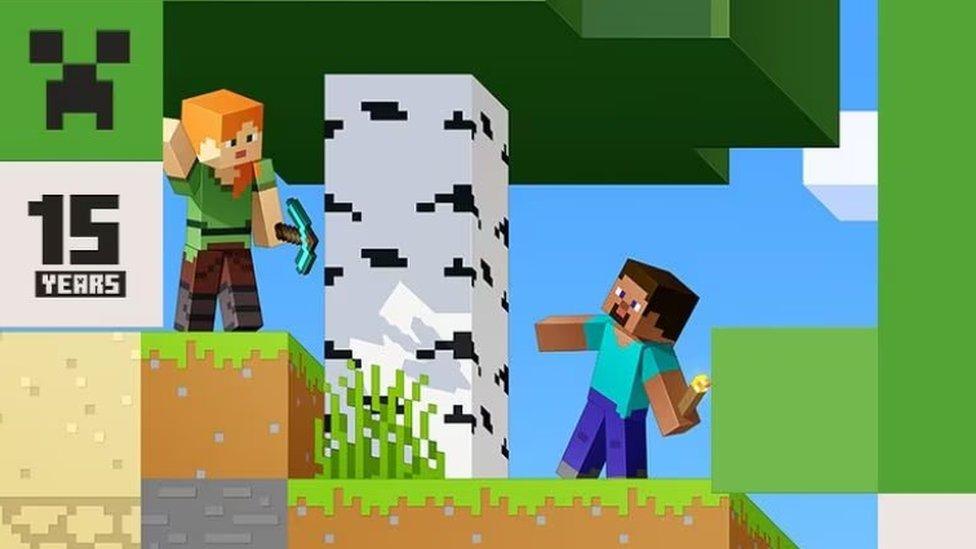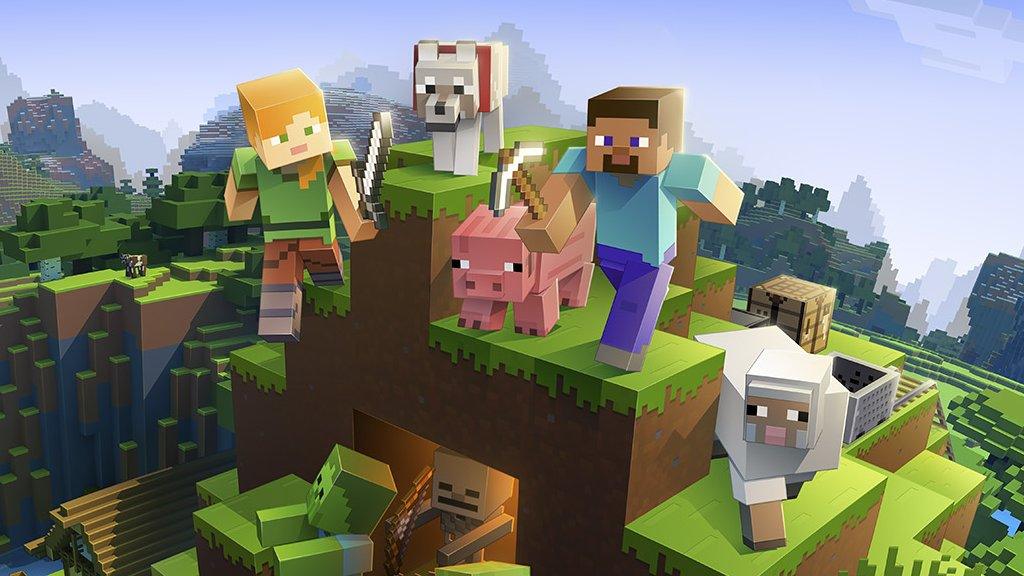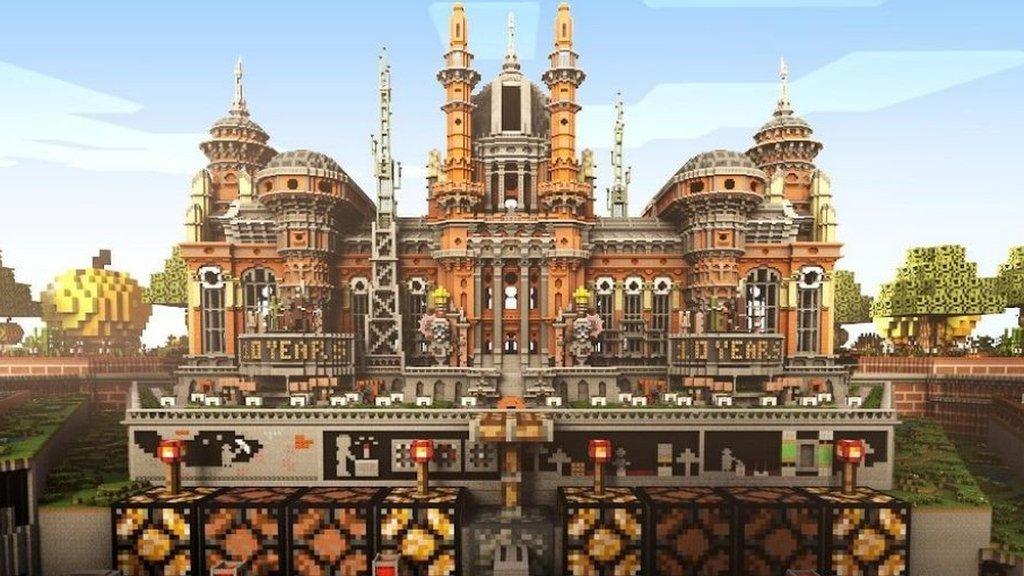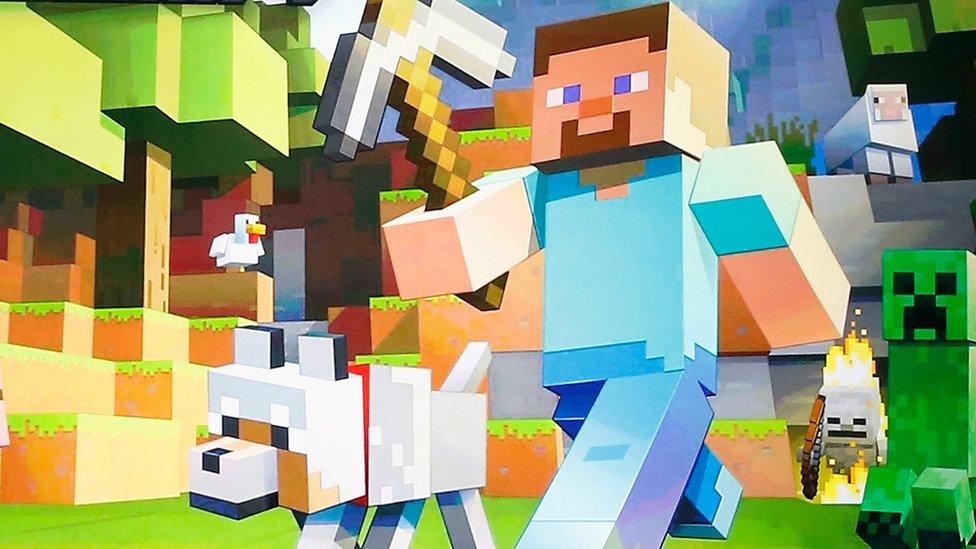Minecraft: Mojang celebrates 15th anniversary of game
- Published
- comments

Happy Birthday Minecraft!
Minecraft is celebrating its 15-year anniversary.
The video game has come a long way since it was first released in 2009, with just 32 blocks and a whole lot of wool.
Now, it's one of the best selling and most played video games in the world, selling more than 300 million copies worldwide, with around 160 million players using it every month.
The game has had a massive impact on the world, from helping kids learn in school, to even having its own movie.
As part of their anniversary celebrations, makers Mojang has announced it is having '15 days of celebration' - from 15 to 29 May - and said they are giving away a free Character Creator item representing a different year of Minecraft's history each day.
But just how much has Minecraft changed the world, and where did it come from?
Minecraft history: When did Minecraft come out?
WATCH: The history of Minecraft
Minecraft was first released to the public on 17 May 2009, and was created by Swedish video game designer Markus 'Notch' Persson - who also founded the game studio Mojang, that now develops the game.
Called Version 0.0.11a, and nicknamed Classic edition, there were only 32 blocks to build with in this early development version of the game. It was almost called Cave Game instead of Minecraft.
Crafting, Survival mode and the first hostile mobs - short for mobile entities - were added later that year, including Skeletons, Zombies and Creepers.
After two years in the development stage, Mojang announced that the full version of the game - version 1.0 - would be released on 18 November 2011.
According to Jens 'Jeb' Bergensten - the Chief Creative Officer at Mojang - Creepers were made by accident! The creator Markus was supposed to be designing a pig, when he mixed up the height and width numbers for the character, so it stood up vertically instead of horizontally. The team thought it looked funny and a bit creepy, so decided to keep it in the game changing its colour to green, and adding its famous explosion feature.
Who makes Minecraft?
Ricky went behind the scenes to Mojang in 2017 to find out more about the people who make Minecraft,
The Swedish game developers Mojang makes Minecraft.
It has offices all over the world, but their main headquarters is in Stockholm, the capital city of Sweden.
In 2014, after becoming very popular, Minecraft and Mojang were bought by the giant tech company Microsoft for $2.5 billion.
After this Minecraft's creator Markus announced he was leaving the studio and that his colleague Jens 'Jeb' Bergensten would be taking over. Jens is now the Chief Creative Officer of Mojang.
We asked Jens 'Jeb' Bergensten some of your brilliant Minecraft questions! (from 2017)
Why is Minecraft so popular?
Minecraft is one of the most viewed games on YouTube, with more than a trillion views!
Minecraft's chief storyteller, Lydia Winters, spoke to tech blog The Verge in 2021 and said that she thinks the game's popularity was down to the creativity of the players.
"We have people who are off on an adventure and people who are building and people who are playing together, and all those ways of playing are important to us," she said.
We spoke to YouTubers Stampy and Netty Plays in 2019 (see the video below) to find out more about why they love Minecraft, and why they think it's been so successful.
Minecraft: Stampy and Netty Plays tell us all about Minecraft (from 2019)
Minecraft Education - taking gaming into school
In 2016, Minecraft launched their Education edition which allowed teachers to help break down subjects like coding and chemistry in fun and creative ways using Minecraft.
It allowed whole classes to play and learn together on the same server at school.
Ricky went to meet a school that uses Minecraft to find out more. (2017)
Now, millions of teachers and students from more than 115 countries around the world teach and learn using Minecraft Education in their classrooms.
There have even been collabs with nature documentary series BBC Planet Earth, and the Unesco World Heritage organisation.
Shanequa went to meet some children who learnt how to run their own renewable energy windfarms in Minecraft Eduacation.
Minecraft and autism
The National Autistic Society has said that playing Minecraft can really help children with autism.
Autism is a condition which means you may think a bit differently to other people. It affects how you see the world around you.
Minecraft has been praised for helping some children with autism to become more confident and make more friends.
Minecraft
- Published8 April 2020

- Published14 May 2019

- Published21 September 2017

